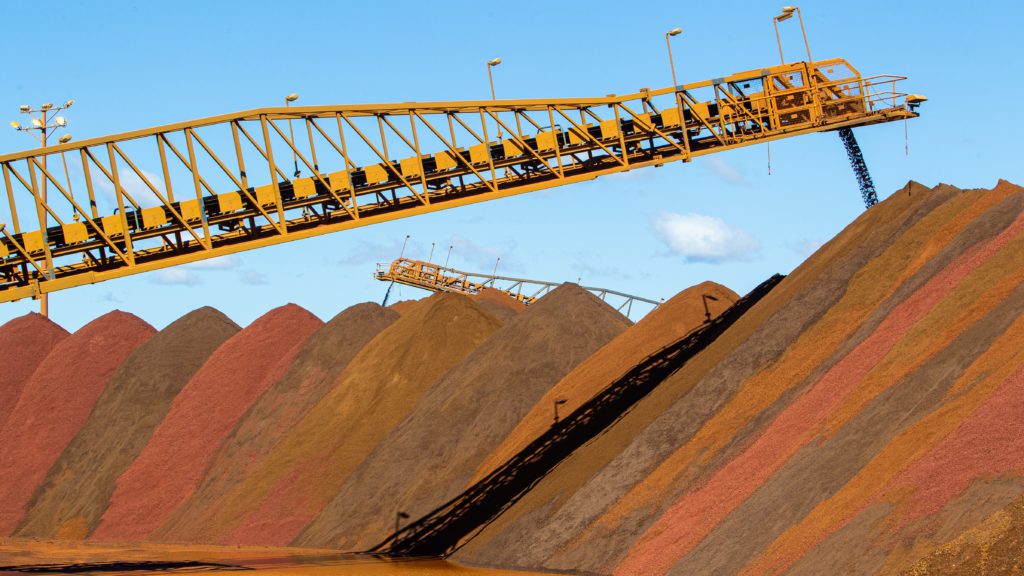Bank of America cuts iron ore price forecasts

The Bank of America’s global research team is lowering its price forecast for iron ore fines in 2022 by 45% to $91 per tonne (down from its previous forecast of $165 per tonne) on the back of enforced steel production cuts in China. Beijing’s restrictions on steel output are driven by its goal of driving down emissions.
For this year BofA has cut its price forecast by 16.6% to $157 per tonne from $188 per tonne.
“China’s policy to “force” steel production -10% during the period August-December puts the iron ore market into surplus,” BofA analysts wrote in a research note to clients. “Barring a change in this policy stance, we don’t see any reason why iron ore shouldn’t trade down to marginal cost (c. $80/t), particularly as “blue sky” policies loom in early 2022 for China’s winter Olympics.”
The winter Olympics begin on February 4.
Recent guidance from the country’s Environment Ministry, the bank says, “suggests authorities will remain focused on emissions in the run-up to the Olympics next year.
“Linked to that, our China steel team anticipates another weak year for steel production in 2022. Of course, embedded in that … is the possibility of a rebound in steel production post-Olympics, but until then iron ore prices remain under pressure.”
Steel production in China fell by 12.6% in August and forecasts that steel production will fall in 2022 by 1.4% year-on-year
BofA forecasts the global iron ore market “will likely flip into surplus” next year. “As such, we believe that iron ore prices could once again decline to $70/t in the coming months, cutting well into the cost curve.”
The bank reports that steel production in China fell by 12.6% in August and forecasts that steel production will fall in 2022 by 1.4% year-on-year.
Other “dynamics” at play include a “patchier” economic backdrop; slowdowns in the auto industry due to chip shortages; and a downturn in China’s property sector (above and beyond the default risk facing one of China’s largest real estate developers, Evergrande, which has about $300 billion in liabilities).
“Of course, some of the cyclical headwinds are driven by growth tailing off after the Covid rebound,” the report stated. “That said, we are concerned about two sectors in particular: property in China and car production globally … the two sectors have made a negative contribution to China’s copper and steel demand growth in recent months.”
The report, sub-titled: All the king’s horses and all the king’s men unlikely to put iron ore together again, also pointed out that construction in China “has a meaningful share in demand for many raw materials … the share of China’s property sector in global demand ranges from 10% to 29% so healthy activity is important.” While developers in China continue to complete building projects, BofA says, “operators have been increasingly reluctant to break ground on new building sites.”
(This article first appeared in The Northern Miner)
{{ commodity.name }}
{{ post.title }}
{{ post.date }}




Comments
William Chabalala
Whay is Iron Ore goes down like that or is becouse of the competition?